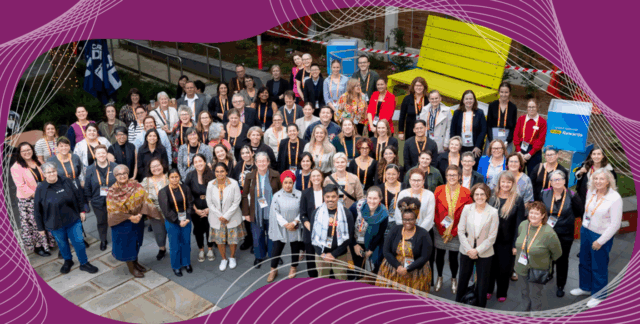UNSW has earned it fourth SAGE Cygnet Award, this time for interventions to improve gender equity in the STEMM student pipeline.
The University’s organisation-wide goal was to ensure UNSW retains a diversity of talent in student cohorts, through gender equity programs in STEMM.
Barriers to STEMM student diversity
The University identified key barriers preventing diversity in their STEMM student cohort:
- a lack of diverse representation in STEMM roles and academic positions
- limited access to information about STEMM studies and careers in school
- persistent stereotypes that STEMM studies and careers are more suitable for men
- bullying, harassment and a non-inclusive culture.
The University also acknowledged the compounding barriers for women students with Aboriginal and Torres Strait Islander, first-in-family, low SES and/or culturally and linguistically diverse (CALD) backgrounds.
Removing misconceptions about STEMM degrees
SAGE CEO Dr Janin Bredehoeft congratulated UNSW on another ambitious and wide-ranging project, leading to this Cygnet Award.
Scientia Professor Fiona Stapleton, Academic Lead for UNSW’s SAGE Athena Swan Program, emphasised the whole-of-institution approach to change.
“The submission for the Student Pathways in STEMM Cygnet Award highlights UNSW’s efforts to tackle the structural and systemic challenges faced by students from traditionally underrepresented backgrounds.
“It has been inspiring to see the work taking place across the university to increase participation for underrepresented groups in STEMM fields and removing misconceptions about ‘who’ STEMM degrees are for.”
An impressive range of interventions
Working in strong consultation with students, UNSW introduced an impressive array of interventions improve STEMM student equity.
In the transition to university,
To attract, retain and progress a diversity of talent in STEMM student cohorts, UNSW implemented the following actions to intervene at three key stages of the student lifecycle: transitioning to UNSW; student experience at UNSW; and their transition into the workforce.
For those transitioning into UNSW, programs, scholarships, fellowships, ambassadorships, workshops, forums and events have been conducted to better enable students to explore and apply for study in STEMM disciplines, alongside alternative study pathways for women and Indigenous students.
Existing STEMM students are supported through onboarding and belonging programs, mentoring, feedback, societies, fellowships, awards and funding, including “Gateway” funding for students from socio-educationally disadvantaged backgrounds.
For those transitioning to the workforce, a range of graduate supports includes the STEMM Champions, a 12-month program equipping participants with the skills to build their public profile and become visible advocates for girls and women in STEMM.
UNSW also targeted policies, strategies, governance and culture for improvement, and built structures to prevent and respond to gendered violence on campus.
Women STEMM students have reported increasing feelings of belonging, safety and support during the student lifecycle at UNSW. Areas where the University can continue to improve have been identified.
About the Award
This is UNSW’s fourth Cygnet Award. Read their full application for their Cygnet Award here.



